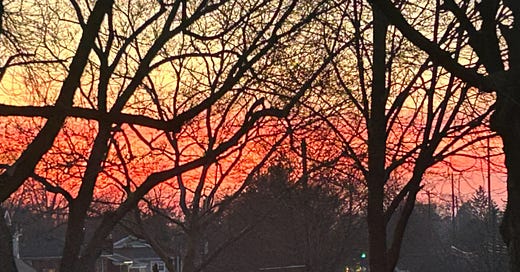confronting my own mortality (published ~december 2011)
blog preserved in e-mail: exact publication date unknown
I was sitting in my room reading the night I found out Steve Jobs died. And it was the same friend who texted me when complications of esophageal cancer exterminated the mind of Christopher Hitchens (“your hero is dead”) who also sent me a message telling me that the man responsible for the existence of my MacBook Pro was no longer a thinking, rational, feeling entity in the world. Nothing that man did in life changed the ultimate outcome for his brain, for the love he felt for his friends – it was all gone.
It was around nine o’clock when I learned about this, and I suddenly could not stop thinking about my own death. I don’t know how often other people think about the end. I think, though, that most people don’t think about it that much because they force themselves to believe that they will somehow keep thinking even after their brains have expired, that they will continue feeling empathy and compassion after their body’s ability to produce oxytocin is a function of the past, that they will still be able to hear without ears and that they will still be able to see without eyes.
But I am convinced that all of my senses expire with my body, because I know that my senses come from specific elements of that body, and so I think often about the end. I reflect frequently on that moment that cannot be averted. I dread the unavoidable second when the materialistic, physical machinery within my body that allows me to experience the world and be conscious of my surroundings – I mean to hear with my ears, to see with my eyes, to think with my brain, to feel with my hands, to smell with my nose – will shut down entirely, decomposing into the Earth.
And when I learn that it has happened to Steve Jobs or Christopher Hitchens or whomever, I am instantly reminded yet again that the same must become of me. Every time I am confronted by the fact of death in another, I find myself spending long hours horrified by the renewed realization that I share that fate. It will not matter how many books or blog posts I write, or how many friends I have who don’t want me to die, or what children I have born who want me by their side. It will end.
Worse yet, there are billions of years ahead during which this universe of ours shall continue existing without me. Imagine what will happen in the midst of all that time and space that I will never have the chance to learn about, to think about, to write about. Think of all the literature, the novels and the poetry and the short stories, that our descendents will compose in the coming millennia. Think of the music, with the beautiful lyrics and the new instruments yet to be invented, that your children’s children’s children’s children will be able to enjoy.
And they might be able to read what you wrote. And they might be able to learn about our point in history.
But we will never know what they know. We will never see and hear and feel what they do. The darkness, the blackness, the emptiness ahead for you is terrifying.
And I simply do not have a religion that tells me it will all be okay. I don’t believe in that Christian doctrine of immortality that implies to me that I can see without eyes and hear without ears and think without my brain, that while all those organs are decaying underground I will still be experiencing Heaven all the same, with all my senses fully intact and operational. If I did believe this, if I were a Christian, perhaps I wouldn’t be very scared of death. Perhaps I would instead look forward to death as the beginning of something new, as the onset of eternal happiness, as the coming of peace everlasting. I see why this idea is tempting. I see why you don’t want to believe in your ultimate demise. You want to experience these things of the future, because you love experiencing life and kindness and happiness and even sadness.
But it doesn’t matter what you want out of reality. The conception that you are immortal and that death will pass you by is catered very much to your psychology as a conscious human being who does not want to stop feeling, thinking, experiencing. And that’s because it’s an idea invented by humans, like you, who felt the same about death as you do. They didn’t like it. So they said it wouldn’t happen.
You and I, however, are both animals. We are primates, mammals, organisms. There is no more reason that I should expect me to keep existing after my body expires than that I should expect a cow or a mouse or a chimpanzee to keep existing after its body expires. We’re all made of the same stuff, more often than not even the same genes. We have the same anatomy, and a chimpanzee sees with its eyes like you see with yours eyes, and you have no more reason to believe you will continue to see things after you die than does a giraffe or a lion. Your fate, I think, must be the same as was the fate of your greatest grandfather – the single cell, our common ancestor.
And if this is true, then conscious experience ends with your body’s demise.
Use your time wisely.





